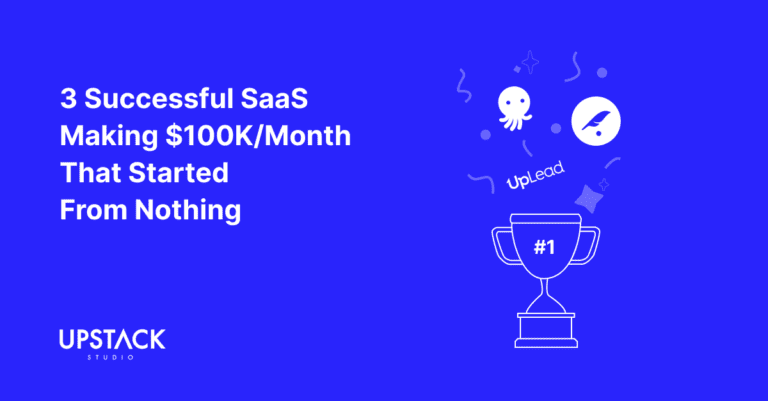Custom Software Is Expensive
A study by JP Morgan found only 8.9% of businesses make it to USD 1 million in annual revenue within their first five years.
If that’s you, you are literally in the top 90th percentile of SMEs and should feel proud.
Also, can we borrow ten bucks?
When growing beyond its first million, the problems a business faces usually become more specific to the organization itself, which reduces the impact of generalized off the shelf software.
That’s when decision-makers start considering the benefits of custom software.
Here are three key requirements to meet before exploring custom software over off the shelf options.
3 Signs to Explore Custom Software over Off-the-shelf Options
1st Sign: You’ve Validated Your Problem / Idea
Before diving into custom software, ensure you’ve done your homework!
Key Considerations:
- Identifying Real Problems: Concrete evidence that your business faces significant challenges.
- Demand for Digital Solutions: Target users who prefer digital solutions and are willing to pay for them.
- Market Research: Validation through thorough market research to ensure viability.
If you’ve ticked all these boxes, you’re ready for custom software.
2nd Sign: Pre-Made Solutions Aren’t Enough
For those looking for software to meet internal business needs, be sure ready-made software options don’t solve your issues before even considering a custom solution.
Meanwhile, those looking to build software to sell to new and existing customers should confirm that there is nothing on the market that already offers your proposed solution.
Internal Products:
- Evaluate existing off-the-shelf enterprise solutions like Salesforce or Trello.
- Customizable options may solve your problems faster and cheaper if they meet your needs.
Customer-Facing Products:
- Determine if your product has a Unique Selling Proposition (USP) that can withstand competition.
- If no existing competitors offer what you do, custom software may be the strategic choice.
3rd Sign: You Have the Time and Budget
Custom software demands significant financial and time commitment.
As we explain at length in our software development cost breakdown, development costs are the result of multiplying developer hourly rates by the total number of work hours needed.
However, go deeper and you’ll find many factors that raise or lower hourly rates and total hours.
Also, while budget is important, a custom solution isn’t viable if you can’t consistently attend meetings, review updates, and give timely feedback – your input is what drives the customization!
Note: Our guide to creating an app In 12 weeks explains founder responsibilities during development.
Financial Considerations:
- Budget realistically, keeping in mind a starting point of around $50,000.
- Ensure sustainable funding throughout development to avoid setbacks.
Time Commitment:
- Dedicate sufficient time to oversee development and testing.
- Consider appointing a project manager to ensure smooth progress.
Making Your Final Choice!
Based on everything covered above, here’s when you should go custom, and when to use an off the shelf software solution.
Choose custom software if:
- You’ve validated a unique business problem.
- You’ve verified that off-the-shelf solutions don’t adequately address this problem OR your proposed solution has a unique selling point that competitors lack.
- You’re certain you have the resources to commit to building a tailored solution.
Choose off the shelf software if:
- You are still in the process of validating your business problem.
- You prioritize cost-effectiveness and speed over a fully bespoke solution.
- Your requirements are standard and well-served by established software products in the market.
Next Step for a Custom Solution: Hire Developers
So, you’ve concluded that custom software seems like the right path for your business.
It’s very important to work with the right app developers for the project.
The steps and practices involved in engaging developers are a subject unto themselves, and here are some resources that cover the various aspects:
- 6 questions to ask app development companies before hiring them
- A guide to offshore developer rates
- Why hire Upstack Studio as your app developer
- 15 websites to find developers
If you think it’s a lot of reading, just hire us and save yourself the hassle of browsing 15 websites!
Hey there stranger, thanks for reading all the way to the end. Consider joining our mailing list for a one-stop resource on everything from micro SaaS validation all the way to execution and promotion. Get a nifty list of questions to ask app developers when you sign up!
App Developer Interview Questions Template
Download this template now so you know exactly what to ask App Development Agencies! Let us know where should we send it through the form below.





